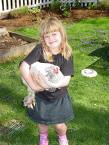 Can love boost egg production? I definitely think so. Those of us who have chickens definitely benefit from loving our brood. Not only from minimized chasing and pecking when we enter their pens, but also from (I think) increased egg production.
Can love boost egg production? I definitely think so. Those of us who have chickens definitely benefit from loving our brood. Not only from minimized chasing and pecking when we enter their pens, but also from (I think) increased egg production.
That said, I must admit I am going all out to sustain my brood’s egg laying during the coming winter months.
Apparently, scientifically speaking, chickens need at least 12 to 14 hours of light each day to lay eggs regularly. So, as all you chicken people know, your hens “lay off” during the winter months when daylight hours are short and don’t produce many eggs at all. Hardly any, to tell the truth.
What is one to do to encourage regular egg-laying during those short, dark days of winter?
Much is to be found in answer to this question online. Indeed. And here are a few of the answers:
1. Provide your hens with 14 – 15 hours of light each day.
2. Provide your hens with warmth.
3. Put a little cayenne pepper in your hens’ water to pep up their internal thermostat.
… from here on out are my own suggestions. BUT, they are based on my own chicken research over the past decade or so.
4. Give your chickens fresh greens every day (yes, even if you have to buy them in the winter — or give them some of your horses’ alfalfa).
5. Go in your chickens’ pen every day at least 2 or 3 times and talk to them. Play like you are bringing new delectables, even if what you have isn’t that special.
6. Provide interesting water. Fresh and running, if possible. A fountain would be nice. Mine have a “pool” that I refresh twice a day in summer.
7. Talk to them. When one egg per day was being pecked apart and eaten a couple of months ago, I zeroed in on the errant hen and had a serious discussion with her about cannabilism. Since our talk not one egg has been ravaged.
So here we are. It is now suddenly winter. And here’s what I’ve done for my chickens, not only because I love them, but because I really, really want to have their eggs throughout the winter.
1. I built them a huge hen house, complete with electrical outlets for various accoutrements.
2. I roofed a small yard area just outside their door so that, even when we have snow, they will be protected and can go “outside.”
3. I fenced in and covered with bird mesh another yard, outside their “inside” yard, so that they can really, really go outdoors (the mesh is to protect them from predatory birds). That is where their summer pool is.
4. I have gates and doors between all areas to insure their security, and I lock them in very carefully every night.
5. They have a lovely camping ground spot (an old shed) for passing time during moderate seasons — I call it a hovel, but they seem to love it and demonstrate that by occasionally laying eggs in it and by sleeping on it’s low roof during warm evenings.
What else? Oh!
6. Yesterday I spent the entire afternoon hooking up bright lights on a timer in their house so they’ll have the prerequisite 15-16 daylight hours in which to do their duty (eggs!). I also hooked up two heat lamps over their swank, homemade nighttime roost (which, so far, they have snubbed their little beaks at in favor of the roof of the aforementioned, hovel for sleeping on). And, last but not least, they now have a heated water bowl. Ta dum!
I trust all this will pay off. All I want is a few eggs a week out of the deal. That’s not an unfair trade for the hundreds of dollars and dozens of hours spent on my chickens’ behalf.
But you know what? I think my love for these guys matters the most. They know me. They get real excited when I come to their pen. They cluck and posture and beg and flap for whatever tidbits I might be bringing them. We have conversations. They love the attention.
Never mind that my rooster, Mr. Smarty Pants, immediately dive bombs my feet if I walk in wearing a pair of shoes or boots he doesn’t recognize. On the whole, I just know it’s all about love with these chickens. And I will report back on egg production mid-winter.
Recent Comments